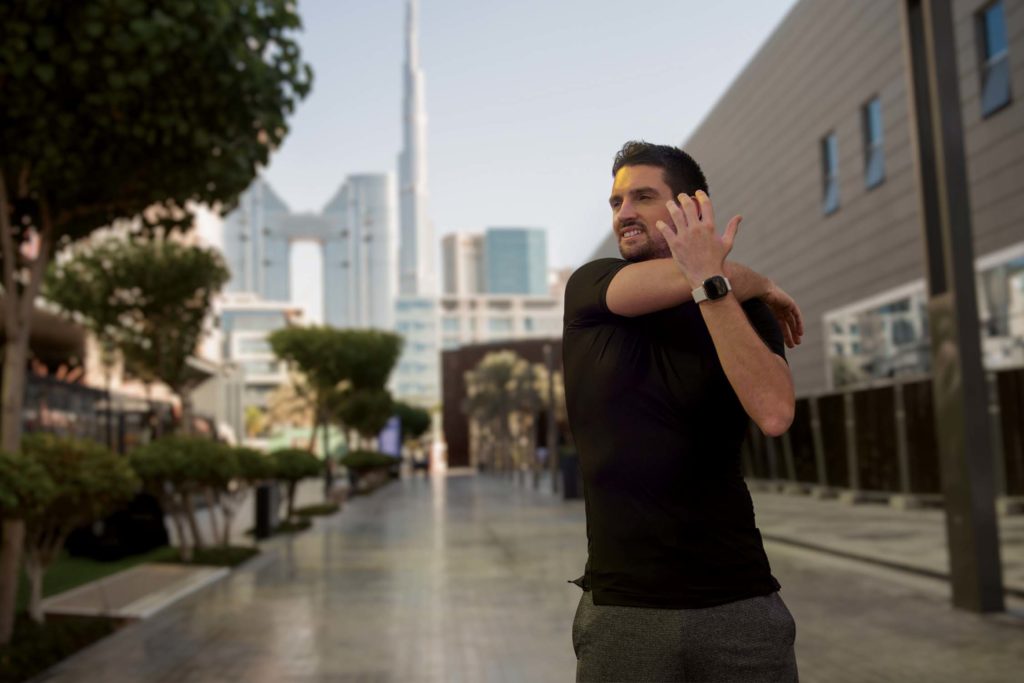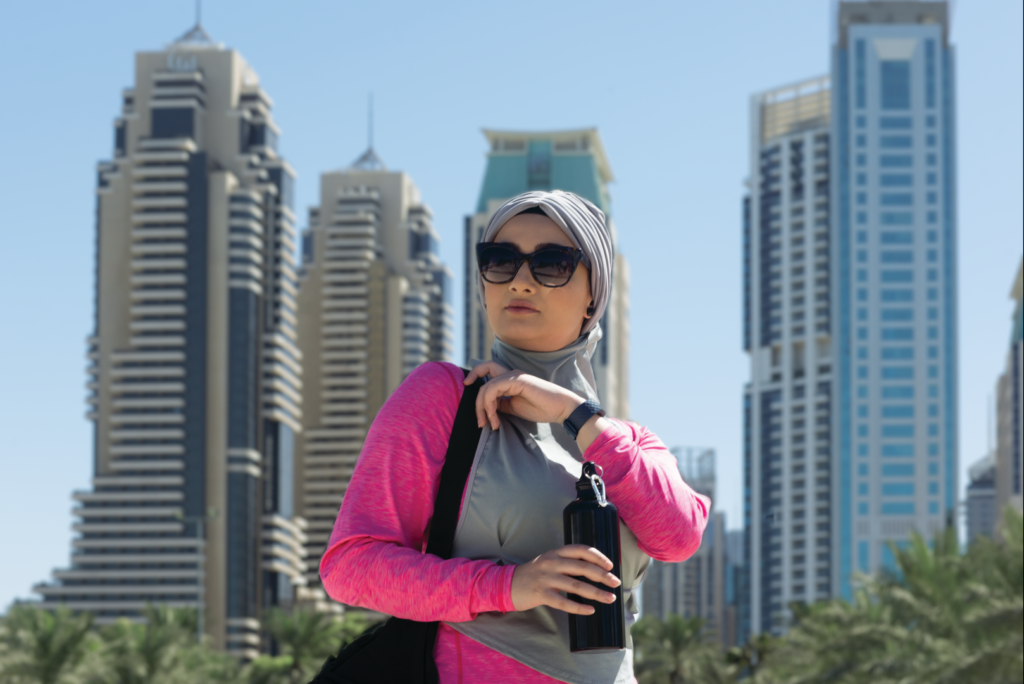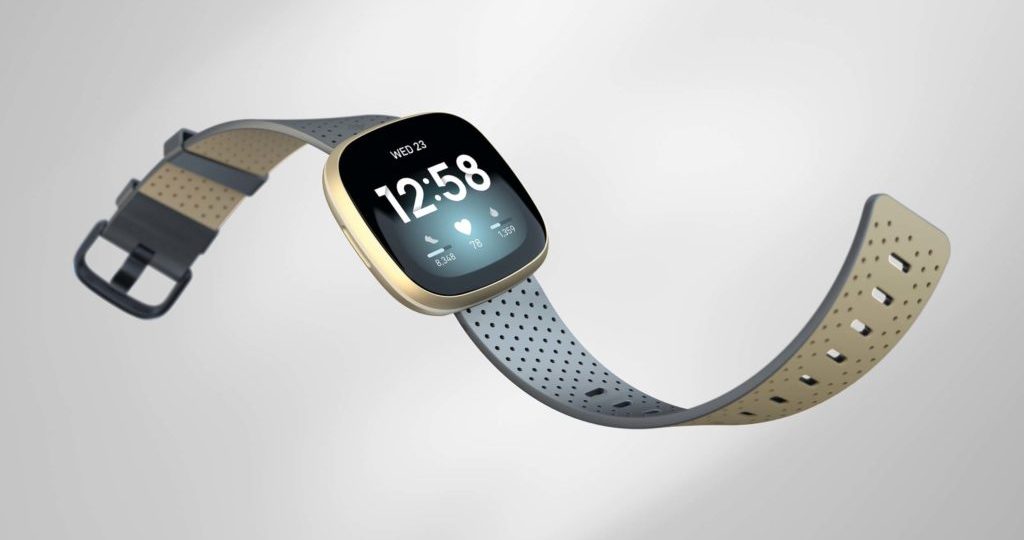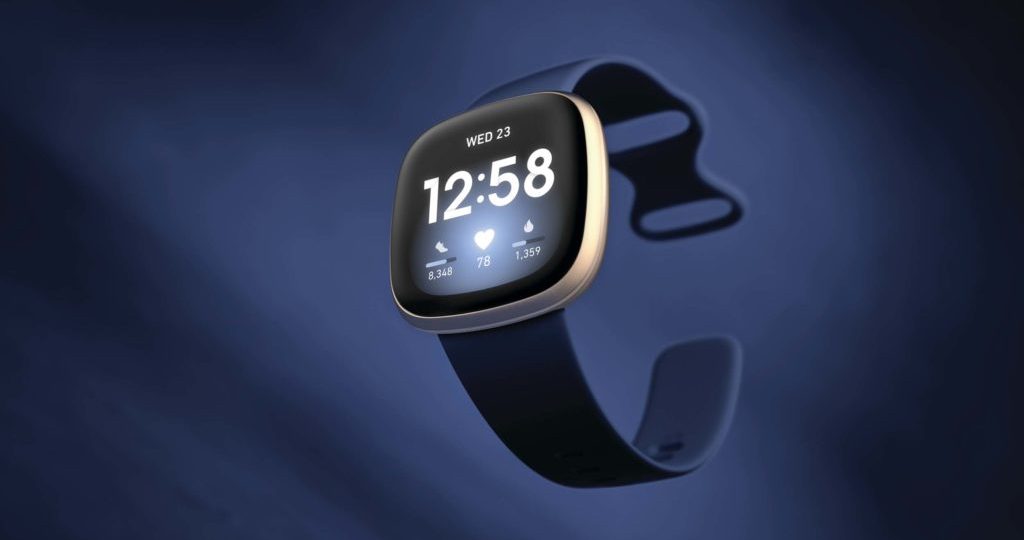FITBIT, THE SMART TRACKER

Can wearing a Fitbit really help you lose weight? Steve Chalmers wore the ‘motivational smartwatch’ for a year to find out.
When I stepped on my bathroom scales on the 1st of January 2020, I weighed in at 100.5kgs – well overweight for my 6-foot frame. I had a BMI of 30.3; 29.7% of me was fat and my visceral fat (the nasty abdominal stuff) was calculated at 20.5.
One year later and I now weigh in at 93kg, with a BMI of 28.1, 27% of me is fat and my v-fat has dropped to 17.5.
Now here’s the thing – I didn’t diet or visit the gym at all last year. No lettuce, no kale, no burpees. Quite the opposite, as I always started my day with a cappuccino and almond croissant and my weekends revolved around pizza and numerous Indian and Chinese restaurants.
So, what did I do to lose 7kgs while essentially eating chicken tikka masala? Well, I just did stuff – lots of stuff, while monitoring my efforts with a Fitbit (I started with a Fitbit Ionic, before moving up to a Versa 3).
In wellness terms, ‘stuff’ translates into NEAT (Non-Exercise Activity Thermogenesis), basically, your everyday movements, from walking to the Indian restaurant to cleaning the bath and although it has yet to have been scientifically proven, playing X-Box.
My Fitbit counted my daily steps (it rewards you with a funky animation when you hit your daily 10,000), calories burned, heart rate and sleep patterns, which allowed me to calculate a slight calorific deficit every day, which meant I could eat what I wanted. This slight weekly weight loss built up over the year and resulted in the kgs coming off and staying off.

The Versa 3 is the latest Fitbit motivational GPS smartwatch and without doubt, the most stylish. I upgraded from my trusty Ionic mainly due to the fact the Versa 3 looks more modern and also, for its screen. The AMOLED display means that you can view and navigate the screen in bright sunshine – something that was near impossible on older smartwatches. The touchscreen is also quick and easy to navigate, with all essential applications just a finger swipe away – handy for when you want to swap between the heartbeat monitor and current speed on a lap of Al Qudra. No matter what your fitness levels, the Fitbit can keep you in your ideal heart rate zone (fat burn, cardio, and peak) – a function that is as much about slowing down your activity than speeding up.
Your daily data is bluetooth’d over to your smartphone and it’s here you can view your steps, floors climbed, kms walked, calories burned and zone minutes (your heart-pumping activity).
You can also view your sleep patterns, probably one of the most eye-opening of all the Fitbit functions.
If you go to bed at midnight and wake up at 8 am you’ve slept a full, refreshing 8 hours, right? Wrong; the Versa tracks your time asleep, your deep and REM cycles and your restorative sleep and it’s nowhere near as good as you think it is. If you’re waking up after a full night’s sleep feeling rough, then it’s because you’ve had a full-night of rough sleep. To get a decent 8 hours sleep, I have to hit the pillow at 10 pm latest, before waking up at 8 am. And of course, rest and recovery aid massively in losing weight.
Day-to-day living with the Versa 3 is fine. The new style strap is comfy and less irritating to the skin than the older models and the charging and battery life is on another level. It charges super quick and lasts for days, so-much-so that there is even an ‘always on’ setting for the screen.
The screen itself can be customised from the phone app, so you can opt for a simple face, or go for a full-spectrum readout, depending on how much info you want to see.
So, yes, the Fitbit motivational smartwatches work. They track all the essential info you need to lose weight and keep healthy. Put it this way, with a Fitbit you can never end your day on an indicated 8,000 steps; you have to hit 10,000, even if it means jogging around your living room in your slippers – something I have done more times than I care to remember over the last 12 months.









